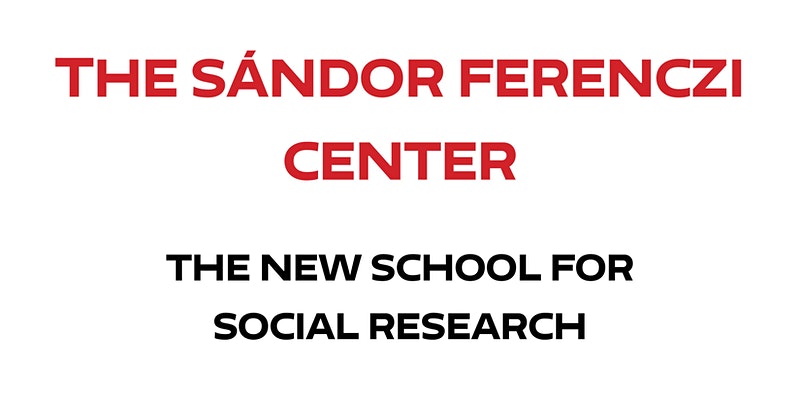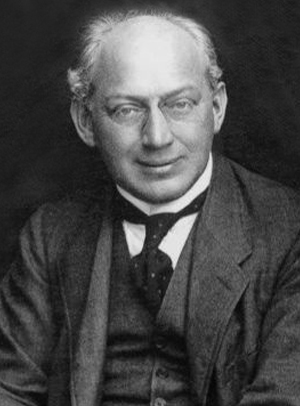The Unwelcome Child and His Death Instinct: A Five Session Seminar

Presents
The Unwelcome Child and His Death Instinct
A Five Session Seminar
Saturdays in 2021:
March 13, April 17, May 15, October 16, and November 13
12:00-3:30p (with a 30 minute break)
Virtually by Zoom
(possibility of hybrid in-person meetings TBD)
Register HERE
General Admission for all five sessions: $350
General Admission + CE credits: $450
NSSR students, NYU Postdoc students, and Analytic Candidates: Free
(email NSSRFerencziCenter@gmail.com with your student N# to reserve a spot; limited number of seats available)
CE Credits (15 hours) available for
New York Social Workers and MHCs
APA CE credits available for Psychologists
For students and practitioners of all levels
This 5 session seminar will be held over 2021. We explore different aspects and implications of the seminal paper by Sándor Ferenczi, “The Unwelcome Child and His Death Instinct,” written well before the emergence of systematic work on attachment and infancy, which advanced an extraordinary thesis: “unwelcomeness.” Unwelcomeness could arise during the prenatal or neonatal period and may become a steady part of a particular child’s early development resulting in devastating consequences. There is a chilling sentence in the paper: “The unwelcome child dies easily and willingly.” Somatic, intrapsychic, social, and intellectual processes and conditions can and will be radically affected by early intrusive neglect and abuse.
In this seminar series we explore many of the same theoretical constructs as Ferenczi did in his original article. We will look at the complexities of attachment, unwelcomeness in development, the effects of unwelcomeness as it appears in clinical circumstances, unwelcomeness which may be part of the experience of twins, adopted or replacement children and various vicissitudes in development. We consider the presence of serious trauma in children and its relation to unwelcomeness.
Tentative schedule:
March 13
Unwelcomeness in the context of attachment
Moderators: Adrienne Harris, Miriam Steele
Speakers: Adrienne Harris, Howard Steele, Miriam Steele
April 17
Unwelcomeness as a pervasive developmental dilemma and in the transference and countertransference: an aspect of replacement
Moderator: Adrienne Harris
Speakers: Arthur Fox, Susan Klebanoff, Heather Ferguson, Michael Feldman
May 15
Unwelcomeness in the context of migration, exile and the Pandemic
Moderator: Jennifer Hunter
Speakers: Adam Brown, Spyros Orfanos, Karen Mason-Jones
October 16
Unwelcomeness carrying/provoking other trauma
Moderator: Adrienne Harris
Speakers: Veronica Csillag, Romy Reading, Warren Spielberg
November 13
Conclusion: Ferenczi’s contributions, influences
Speakers: Adrienne Harris, Endre Koritar, Giselle Galdi
– – – – –
Learning Objectives
At the end of the seminar, participants will be better able to:
March 13
–Identify and list the evidence of the impact of early trauma to attachment patterns.
–Compile and assess the evidence and theory Ferenczi uses to look at the long term effects of failures in the parent to attach and ond with a newborn.
–Use Ferenczi’s theory as a predictor of developmental outcomes from early neglect.
April 17
–Identify somatic and behavioral expressions of Ferenczi’s death instinct in clinical practice.
–Describe how the concept of unwelcomeness can be transmitted from one generation to the next.
–Assess unwelcomeness when it is instilled early and replacement offers partial recognition later; and unwelcomeness when it emerges in development and replacement is negation of subjectivity.
–Describe how the patient’s embodied experience of unwelcomeness may emerge between the therapist and patient.
May 15
–Develop an understanding of current interventions being developed for reducing distress among adolescents and children impacted by forced displacement.
–Rate and describe the effects of migration and displacement on early and emergent attachment.
–Explain the state of child human rights and the intersection with contemporary psychoanalytic psychology in the context of USA and global policies.
October 16
–Recognize the connections among the following concepts: primary maternal preoccupation, the dead mother complex, and the unwelcome child.
–Describe and identify Ferenczi’s contribution to the study of trauma, early disruption of attachment and psychic and somatic growth.
–Describe and compare the varieties of unwelcomeness, involving class, social categories and the history of the child’s conception within the family.
November 13
–Describe how the patient’s embodied experience of unwelcomeness may emerge between the therapist and patient.
–Compare and contrast Ferenczi’s object relations theory of the death instinct described in The Unwelcome Child and His Death Instinct, to Freud’s metapsychological conception of the death instinct described in Beyond the Pleasure Principle.
–Compile and analyze the innovations Ferenczi made to clinical practice and to psychoanalytic technique.
–Identify and describe Ferenczi’s development of the importance of countertransference and notice the links to contemporary clinical theory.

Participants who wish to receive CE credits must attend the event in its entirety; attendance will be recorded to track each participant’s entry and exit time.
Participants with physical or sensory disabilities are encouraged to contact the CE committee members at least 2 weeks in advance of the event to plan for appropriate accommodations. Please contact us via phone or email:
Nichelle Horlacher (Department Secretary) T 212.229.5727 x3223
SteeleM@newschool.edu (Miriam Steele, Ph.D.)
LittL@newschool.edu (Lisa Litt, Ph.D.)
NSSRFerencziCenter@gmail.com (CJ Healy, Student Coordinator for the Sándor Ferenczi Center)
Participants may also contact CE committee members with any concerns. You may also share concerns when you receive your evaluation form after the event.
Tickets may be refunded up to 24 hours prior to the start of the event. Please email NSSRFerencziCenter@gmail.com to cancel your ticket and request a refund.
The New School for Social Research, Department of Psychology SW CPE is recognized by the New York State Education Department’s State Board for Social Work as an approved provider of continuing education for licensed social workers #0199.
The New School for Social Research, Department of Psychology is recognized by the New York State Education Department’s State Board for Mental Health Practitioners as an approved provider of continuing education for licensed mental health counselors. #MHC-0120.
The New School of Social Research, Department of Psychology is recognized by the New York State Education Department’s State Board for Psychology as an approved provider of continuing education for licensed psychologists #PSY-0146.
The New School for Social Research, Department of Psychology is approved by the American Psychological Association to sponsor continuing education for psychologists.
The New School for Social Research Clinical Psychology Department maintains responsibility for this program and its content.
The Sponsors of this event report no conflicts of interest or commercial support.